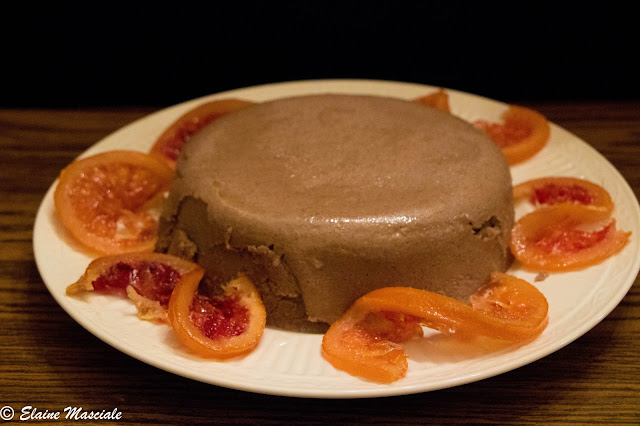The 150th Anniversary of the Charleston (Illinois) Riot
We recently participated in the reenactment commemorating the sesquicentennial of the deadly Charleston (Illinois) riot of 1864. Riot? Deaths? Until then I had believed that Illinois was the site of only peaceful things: Lincoln's nomination, election, farewell, the Great Northwest Sanitary Fair in Chicago, and Lincoln's funeral.
Charleston is the county seat of Coles County. Like many other towns located further South in the state, it had a large number of Southern sympathizers, or at least people who believed their business interests aligned with those of the South. There were also those who were Union supporters but who had grown tired of the war and wished it to end, sometimes under any circumstances. These Peace Democrats were nicknamed Copperheads. The term "copperhead" was derived from the name of the poisonous snake that struck without warning. Apparently the term was used before the Civil War for an unexpected, hostile, vindictive enemy. http://voices.yahoo.com/copperhead-origin-famous-civil-war-term-3669533.html?cat=37 Copperheads seemed to embrace the term by wearing a the copperhead of a penny as a badge. The Copperheads wanted "The Constitution as it is and the Union as it was." They believed the war was increasing hostility between the North and the South that would make a settled reunion impossible.
Emotions had been simmering for a while. In March 1863, four deserters from the Indiana Volunteers had fled to Illinois and were pursued by their officers. They finally caught up to them and arrested them in Charleston. Judge Charles H. Constable, who was holding circuit court, was appealed to and he released the deserters because he considered the pursuit and arrest as an invasion of the civil jurisdiction of Illinois by another state. In addition he had two of the officers arrested as kidnappers. "This action by Judge Constable aroused the combative spirit of Governor Morton, of Indiana, who at once demanded of General [Colonel Henry B.] Carrington, who represented the War Department, a prompt redress of grievances. The General proceeded to Charleston with a file of soldiers, surrounded the courthouse where the judge was hearing the case of the kidnapers, and placed the judge under arrest for interfering with the military operations of the Government. The judge was about to be taken to Indiana as a military prisoner when Judge [Samuel H.] Treat, of the United States District Court for Southern Illinois, interfered and ordered his release."
"Feeling ran especially high between the Copperheads and returned soldiers on leave. A favorite sport of the soldiers, especially after having consumed some of the corn whisky, which at that time was produced in such abundance in Coles County, the “Buckle on the Corn Belt,” was to stop civilians known to be Democrats on the street—even dragging farmers from their wagons—and forcing them to their knees, where they were required to take this oath of allegiance: “I do solemnly swear to support the Administration, Abraham
Lincoln, all proclamations now issued and all that may hereafter be issued, so help me God.”
On March 28, 1864, Judge Constable was scheduled to hold court in the county courthouse. A Democratic rally had been planned for that day, both events drawing a number of local Copperheads to the square. A number of local men enlisted in the 54th Illinois had been on leave and were returning to Matoon that day. Knowing there might be "fun" that day, more soldiers left the train from Paris to come into Charleston. They stacked their guns at the station first. Copperheads, preparing for potential action, hid shotguns under straw in the wagons they brought with them that day.
"Both soldiers and civilians had been drinking freely, and when the ugly temper of the crowd became obvious, Congressman John R. Eden canceled his scheduled speech, and he, Judge Constable, ex-Congressman Orlando B. Ficklin, and other conservative leaders among the Democrats advised their angry. Copperhead friends to go home. Eden himself left the city, and Judge Constable opened court."
Somewhere between 3:00 and 3:30, trouble erupted. Private Oliver Sallee exchanged words with Nelson Wells. Both sides disagree as to who fired first, but both Sallee and Wells were killed. Shooting broke out almost indiscriminately. One farmer, on his way home, heard the shooting and came riding back into the square on his horse. The Copperheads retreated as a group toward the Southeast, pursued by as many men as could be gathered.
A total of 9 men were killed
Major Shubal York of Paris, surgeon., 54th Illinois.
Alfred Swim of Casey., private, Company G, 54th Illinois.
James Goodrich of Charleston, private, Company C, 54th Illinois.
William G. Hart, deputy. provost marshal and member of 62nd Illinois.
Oliver Sallee of Charleston, private, Company C, 54th Illinois.
John. Neer of Martinsville, private, Company G, 54th Illinois.
Nelson. Wells of Edgar County, Copperhead.
John Cooper of Salisbury., Copperhead. Shot when trying to escape after capture.
John. Jenkins of Charleston, Republican. Shot accidentally by fire intended for Cooper.
There were 12 wounded: 4 soldiers, 5 Copperheads, and 3 bystanders
(Unless noted, the information quoted information comes from Coles County in the Civil War 1861-1865
Eastern Illinois University Bulletin)
Here is a video of the riot reenactment.




Comments
Post a Comment